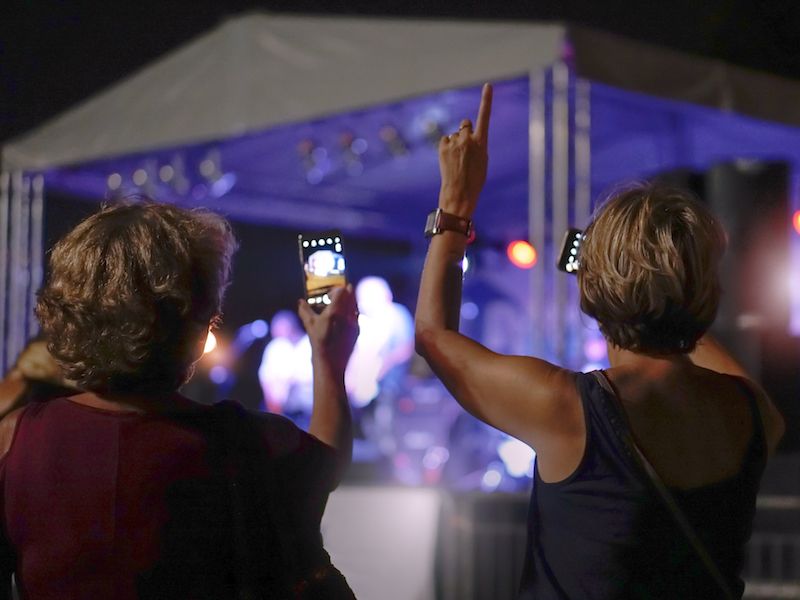
We’ve been getting excited about summer fun all year: going to the beach, relaxing by the swimming pool, and damaged hearing? You may find yourself in external scenarios or subjected to other loud noises this summer that can be hidden hazards to your hearing. Any noises over 80 decibels could cause injury to your ears, while swimming in pools or other bodies of water can lead to irreversible loss of hearing. You need to take preventative measures and be aware of your surroundings so that you can protect your hearing this summer season. Here are six of the summer’s concealed hearing dangers.
Wear Hearing Protection at Concerts
Whether you’re at an indoor venue or an outside concert venue you still need to wear ear protection during concerts. 90 decibels is in the danger zone for ear damage and concerts reach this volume even when you’re at outdoor venues. That’s the reason why it’s definitely a good strategy to use earplugs whether you’re going to a concert indoors or outdoors. You can still hear the sounds with earplugs in it’s just dampened a little bit. If you’re going to a show with young children, think about buying them a heavy duty set of earmuffs because kids have more delicate hearing than adults.
Fireworks Are More Than Just Loud
Honestly, there are a lot of reasons to avoid fireworks in the summer. This is not about the specialized 4th of July fireworks show, we mean the backyard fireworks that trigger many of accidents throughout the summer season. In addition to causing hand injuries, loss of vision, and home fires, personal fireworks can also result in severe damage to your ears since they are known to get to decibel levels of 155. This 4th of July, leave the fireworks to the pros and enjoy the show from a safe and sound distance.
Hearing Loss Can be Caused by Lawnmowers
If you love to take care of your lawn, your edger, trimmer, and mower are your best friends. But this muffled sensation in your ears is a sign that your hearing has been harmed. That’s because the lawn tools, which are constantly loud, impact your hearing over time. You’ve likely noticed landscapers using some kind of hearing protection, you should take a hint from them and wear earplugs or earmuffs next time you work on your lawn to ensure your ears stay healthy.
Beaches And Pools, What You Should do to Protect Your Ears
Huge numbers of people suffer from swimmer’s ear each summer, which happens when the ear canal traps water that is high in bacteria. Painful earaches and swelling result when the ear gets infected by the bacteria. It’s not just rivers and lakes that contain these bacteria, they can also be found in pools and hot tubs if they aren’t cleaned and treated properly. As long as you have your ears treated by a hearing specialist you will probably be fine, and no lasting loss of hearing will happen. To be safe, when swimming in your pool, wear special swimmers earplugs and keep the chemical balance precise to minimize the possibility of getting swimmers ear.
Boats and Other Water Sports
The summer season is a taste of freedom for those who enjoy being in a boat on the water, smelling the salt air of the ocean or the fresh breeze from the lake. But, boat and jet ski engines are usually loud,they can get up to over 100 decibels. Lasting hearing damage can be the result after only 15 minutes of exposure to that much noise. Once again, it’s probably in your best interests to use a couple of disposable, foam earplugs when you’re out on the water to make sure you don’t unintentionally injure your ears.
Car Races Can Hurt Your Hearing
It doesn’t matter what type of auto racing you love, midget, Formula 1, drag racing, motorcycle Formula 1. All of them can present a huge problem for your hearing if you attend many races during the summer. 120 dB is well within the danger zone for hearing impairment and quite a few races go well above this. As pointed out earlier, your children should wear muffs while you should wear earplugs at the very least. Because you might not be able to enjoy the sounds of any races in the future if you don’t.